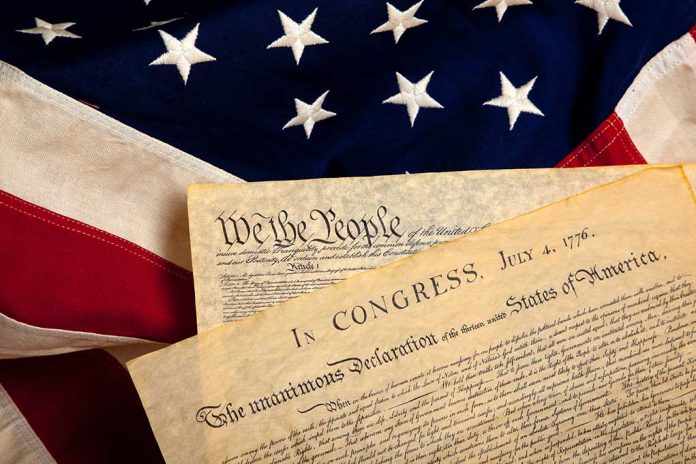
(LibertyInsider.org) – The Founding Fathers felt strongly that a central government should not have too much control. After all, that type of power was what they escaped from when they claimed independence from Britain.
However, as they began to create the federal government, they ran into issues around the balance of power with the states. This is what prompted the adoption of the 10th Amendment.
Straight from the Constitution
Part of the Bill of Rights, the 10th Amendment states:
“The powers not delegated to the United States by the Constitution, nor prohibited by it to the States, are reserved to the States respectively, or to the people.”
It passed Congress on September 25, 1789, but it didn’t become law until the required number of states ratified it on December 15, 1791.
Interpretation and Issues
The Amendment solidifies the idea that the federal government is not one of unlimited power. Prior to its ratification, there had been concerns about an uneven balance of power between the federal government and the states. Some states didn’t want to ratify the Constitution without some type of guarantee that they would retain the right to self-governance.
The addition of this right helped to ensure states have some protected powers, such as determining local and state government functions, managing law enforcement, education, and in-state trade, and handling elections. However, it hasn’t been without its issues.
The US Supreme Court has heard various cases concerning the 10th Amendment. One of the most influential was Garcia v. San Antonio Metropolitan Transit Authority. This case helped define the boundaries of the Amendment’s power.
The Court ruled that the federal government maintains some influence over the states and can require them to observe some national laws. It also limited some federal powers and said the US government could not regulate state governments through legislation.
Challenges of Federal Power
There have been many challenges to federal power, like those that arose in the lead-up to the Civil War. The war was largely about states’ rights. The South feared the government was taking away too many of its rights and would destroy its economy by abolishing slavery, so those states seceded.
States continue to test the boundaries today, with one recent example in many states being the legalization of marijuana.
The federal government has taken certain steps to curb states’ rights. For example, when states were setting the legal drinking age, the federal government told them they had to put it at 21 or lose highway funds.
Importance of States’ Rights
The issue of states’ rights is important because of the size and diversity of the country. Each state has its own concerns and issues. It needs to be able to address them without needing federal input.
Above all else, states’ rights are an essential part of our system of government. They help prevent the federal government from getting too big and retain a balance of power that is in line with the Founding Fathers’ intentions.
Copyright 2023, LibertyInsider.org














